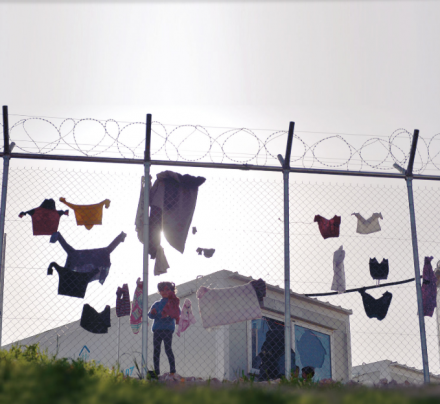A long road to detention being used as a last resort for children: a look at the UN Global Study on Children Deprived of Liberty
22nd November 2019

This week in Geneva the UN Global Study on Children Deprived of Liberty was presented after three years of research. The Study represents the first scientific attempt, on the basis of global data, to comprehend the magnitude of the situation of children deprived of liberty, its possible justifications and root causes, as well as conditions of detention and their harmful impact on the health and development of children. The study also identifies best practices in non-custodial solutions applied by States in six situations.
In this blog, PRI’s Taghreed Jaber, Regional Director for the Middle East North Africa who contributed to the study, summarises some of the key points from the Study and calls for follow-up.
The launch of the UN Global Study on Children Deprived of Liberty this week in Geneva is timely: around the world people are marking, and celebrating, the 30th Anniversary of the adoption of the United Nations Convention of the Rights of Child (CRC) which is the most widely ratified treaty. The CRC is ratified by all UN member states except for the United States. This serves as global recognition for the set of human rights affirmed by the treaty for children, in particular, resorting to deprivation of liberty as last resort.
Article 37(b) states unequivocally that “No child shall be deprived of his or her liberty unlawfully or arbitrarily. The arrest, detention or imprisonment of a child shall be in conformity with the law and shall be used only as a measure of last resort and for the shortest appropriate period of time”.
Despite this commitment by 192 states, children continue to be detained under a range of contexts. This was the subject matter of the UN study, which included examination of questionnaire responses by 92 states, a desk review, a number of international, regional, thematic experts’ meetings, and most importantly the views of 274 children.
Six focus areas of the study cover all situations of deprivation of liberty of children; including, administration of justice, children living in places of detention with their primary caregivers, migration- related detention, children deprived of liberty in institutions, in armed conflict and for national security reasons.
The data tells the magnitude of the problem: The study found that the real number of children deprived of liberty ‘seems to be much higher in all situations of detention’ covered by the Study. In fact, it estimated that more than 7 million children are deprived of liberty in the world each year. This includes 1 million children in police custody, and each year, 1.5 million are detained on the basis of a judicial or administrative decision (i.e. by the courts). What this means is that on any single day there around 480,000 – 600,000 children in detention facilities.
Another important reality the study highlights, is there are 19,000 children accompanying their caregivers in prison (mainly their mothers, since in practice only one country allows for children to accompany their fathers into prison).
As a contributor to the study on behalf of Penal Reform International, I can conclude that this study shows that instead of the principle to deprive children only as a last resort being upheld, there is a tendency towards criminalizing behaviour of children that should warrant protection and proportionate responses. It shows a common trend for putting children, who are vulnerable, through rigid criminal justice systems, that tends to resort to deprivation of liberty as an automatic response over other (more effective and evidence-based) alternatives.
The study provides a list of overarching recommendations and areas of interventions, and measures that should be taken by states to ensure the protection of children deprived of their liberty. There are specific recommendations for ending the different forms of deprivation of liberty to apply this principle of ‘last resort’ enshrined in international standards.
As a member of the NGO panel, Penal Reform International, supported the study from advocacy to initiate the study, throughout the research process and now we look to the follow-up and the crunch of it all – implementation of recommendations.
As stated by the Independent Expert, Manfred Nowak, ‘This Global Study is only a first step to draw the attention of States and the international community to a phenomenon that has largely been ignored in the past: that millions of children of all ages are suffering in many different types of detention in violation of international law, and that we are depriving these children of their childhood and of their future’. PRI continues its commitment to advocate and support the creation of child friendly justice systems that aim to ensure detention of children is really, in practice, a last resort.
More information and resources
See the summary report of the ‘Global study on children deprived of liberty’ submitted to the UN General Assembly in July 2019.
Penal Reform International has a range of tools to assist with the design and implementation of child rights-based criminal justice systems. See what we are doing and publishing here.